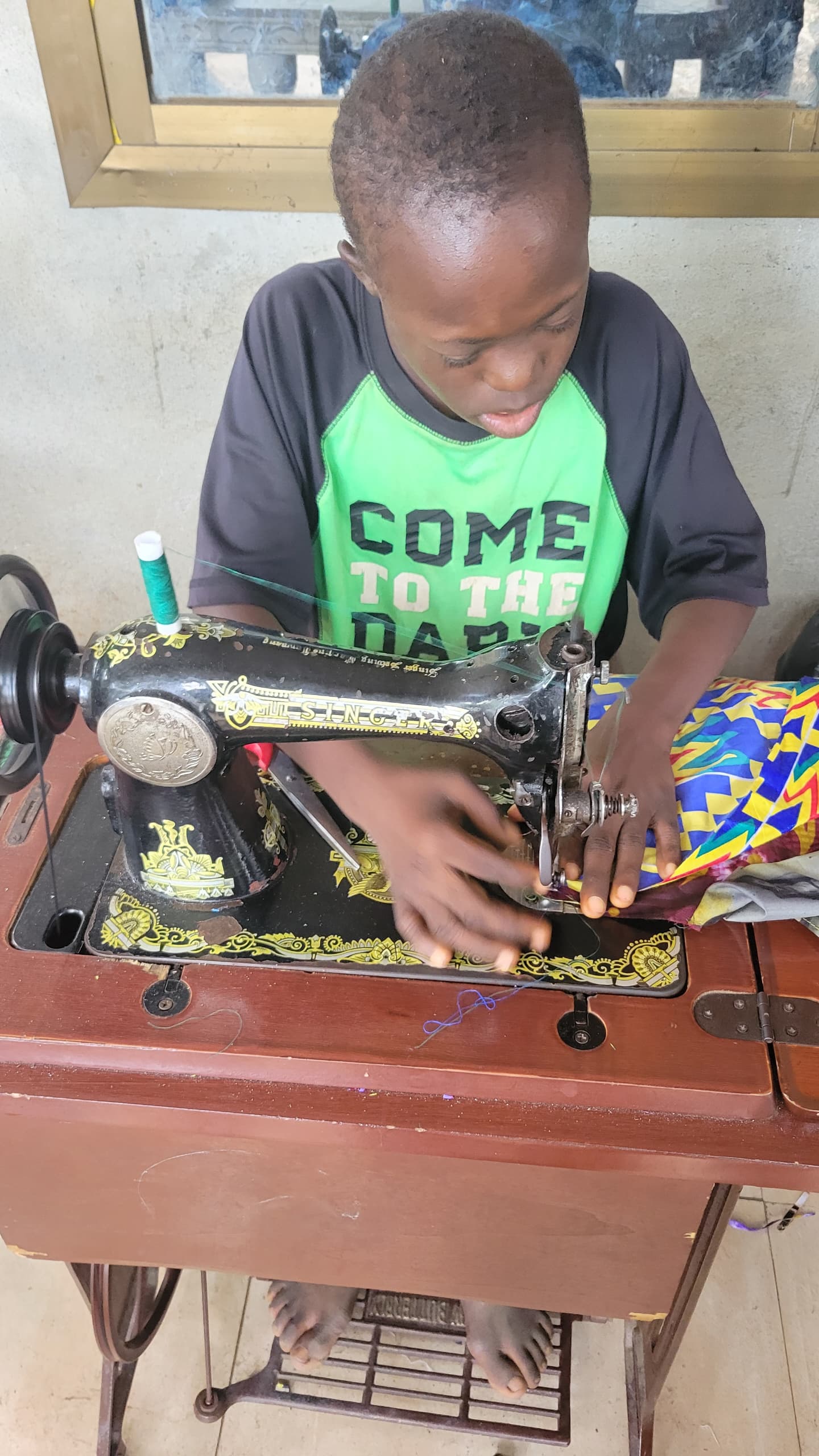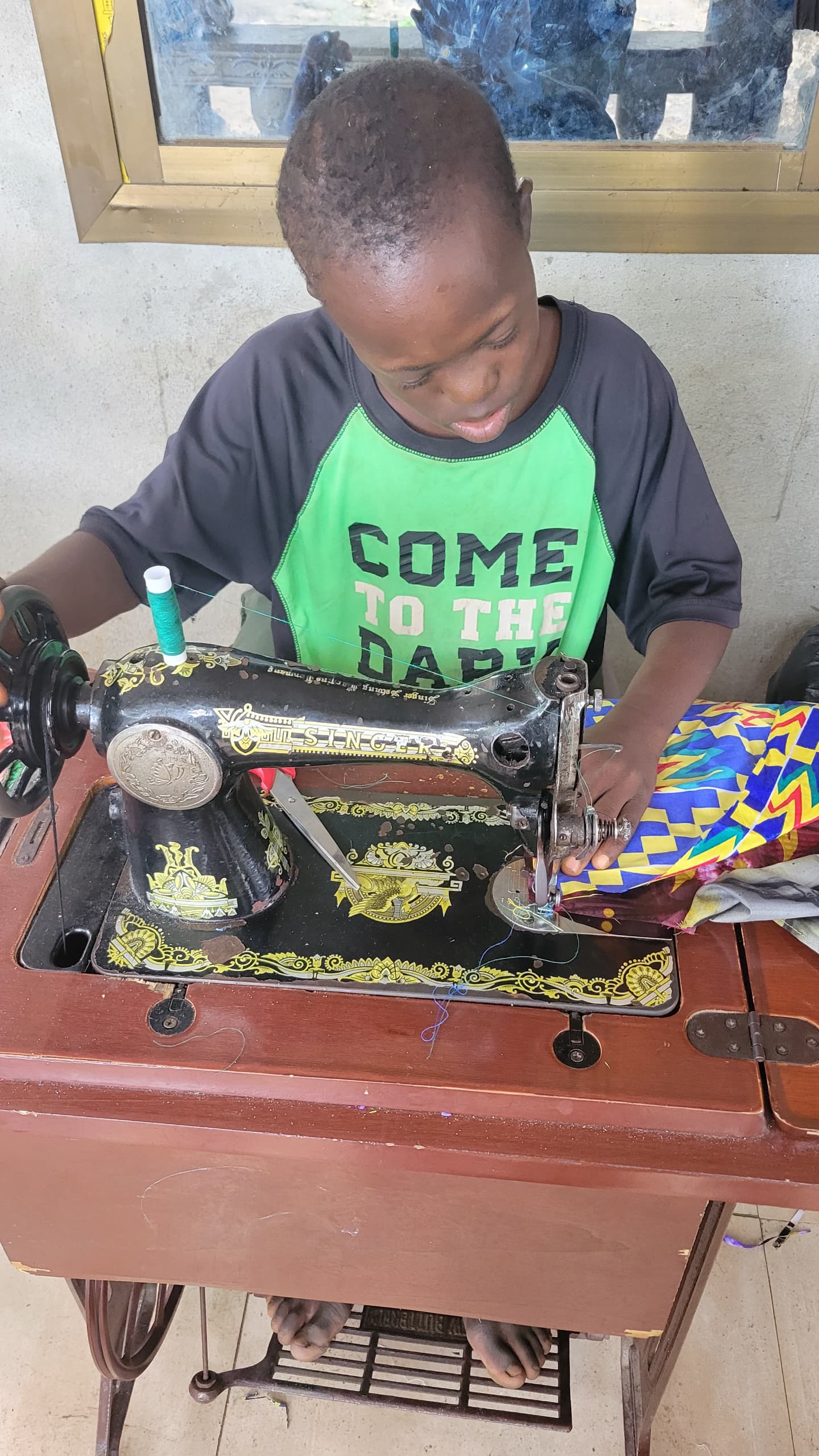MEET ARIANA
The Inspiring Journey of Sorie Sesay: Overcoming Down Syndrome Stigma in Sierra Leone
September 26, 2025
 Adama Fofanah is a mother whose love, courage, and determination saved her son’s life and gave him a future filled with hope. Sorie Sesay, who is her son, lives with Down syndrome. His condition did not show at birth, until after six months. Like any other day Adama left Sorie in the care of a relative to fetch water from one of the streams at her village to do some chores. When she returned, her world turned upside down; she met Sorie paralyzed, without any explanation from those who had watched him. The community, lacking understanding, began to spread harmful rumours, branding him a “devil child” and claiming he was possessed.
Adama Fofanah is a mother whose love, courage, and determination saved her son’s life and gave him a future filled with hope. Sorie Sesay, who is her son, lives with Down syndrome. His condition did not show at birth, until after six months. Like any other day Adama left Sorie in the care of a relative to fetch water from one of the streams at her village to do some chores. When she returned, her world turned upside down; she met Sorie paralyzed, without any explanation from those who had watched him. The community, lacking understanding, began to spread harmful rumours, branding him a “devil child” and claiming he was possessed. Adama continues to provide for her family by selling vegetables, carrying the strength of a woman who has faced unimaginable trials yet remains unbroken. Her son, once rejected, is now shaping a future of dignity through skill and resilience.
Adama continues to provide for her family by selling vegetables, carrying the strength of a woman who has faced unimaginable trials yet remains unbroken. Her son, once rejected, is now shaping a future of dignity through skill and resilience.